SCHOFIELD BARRACKS, Hawaii (Dec. 2, 2010) -- There are a few topics which have generated great concern for the Army's leadership: suicide, taumatic brain injury and post traumatic stress disorder.
Gen. Peter W. Chiarelli, vice chief of staff of the Army, visited the Tropic Lightning Division and hosted a working lunch, at Schofield Barracks, Nov. 16, with Soldiers from across the division, including 14 Soldiers from the 25th Combat Aviation Brigade, to discuss some of the issues he deals with on a regular basis: TBI, PTSD and suicide.
"I'm interested in all kinds of behavioral health issues. What I'm trying to do is get rid of the stigma associated with [these afflictions]," said Chiarelli. "As the vice chief of staff, I usually see the back end of these problems [in the form of] suicides."
The vice chief spoke about alarming trends occurring across the Army, most notably, the issue of suicide.
"[Suicide] is the fourth-leading cause of death in the United States; 32,000 people commit suicide a year. Another 150,000 [people] attempt to commit suicide. We had 160 suicides in the United States Army last year out of 32,000 in the country."
Soldiers such as Staff Sgt. Melissa Roberts, Headquarters and Headquarters Troop, 2nd Squadron, 6th Cavalry Regiment, 25th CAB, inquired about the use of civilian studies to help prevent suicide in the Army.
"We are doing a $50-million study right now with this organization called the National Institution of Health. Suicide is really weird because there has never been a big study done, so this is the very first one to ever look at it. Suicide suffers from the same stigmas as all the [behavioral health issues] do. People don't like it because it's a mental health issue, so they don't want to talk about it. So our study will be the very first one to ever look at this."
Other Soldiers such as Staff Sgt. Moises Cobian, B Company, 209th Aviation Support Battalion, 25th CAB, talked about useful programs such as the Married Army Couples Program.
"I'm dual military, so during all three of my deployments I've been with my spouse. That has helped a lot and I feel like I haven't really been deployed yet [in a family sense]. So I have to say that [the Married Army Couples Program] is a good program."
Chiarelli discussed at length his goal of eliminating the stigma associated with seeking help for behavioral health issues.
"My goal is to get rid of the stigma so that if people feel like they're having a problem they go and seek help. I'm not just worried about folks that commit suicide. I'm concerned about a whole bunch of folks in the Army that are hurt and haven't got the help they need. They're struggling with [PTSD], which is a no-kidding, real-life injury. It's not someone with a head case. It's when the frontal cortex of your brain is not working right and it doesn't regulate your Limbic System and you have chemical damage that occurs in the body."
Following lunch with the vice chief, CAB Soldiers reflected on his willingness to discuss tough issues and get feedback from Soldiers.
"I really liked that he touched on behavioral health. It is a really important topic. Soldiers are thinking about and actually committing suicide, and that's something we've really got to continue to take a close look at. It's good that he took his time to give us an opportunity to give some feedback so that we can improve our programs."
Roberts added: "I appreciate [his visit] as an NCO, but for the junior Soldiers, I think they appreciate it even more. I think they realize that even though they are young enlisted Soldiers, they still have the decision-making capabilities to shape the future of the Army."
She was also impressed with his response to her question on suicide.
"I wasn't anticipating such a robust answer. The statistics that he provided helped me understand that he is really concerned about the suicide issue."
As Chiarelli concluded his discussion with the group of Soldiers, he implored the young leaders to encourage an environment of understanding when dealing with behavioral health issues.
"If you're in a leadership environment where people don't believe it now or don't look upon it the same as any other kind of injury, I hope that you all [develop] into leaders that will create the kind of environment in your units where people can get the help that they need. And you allow them to get the help."
Soldiers seeking treatment for TBI or PTSD can receive help through Military OneSource, www.militaryonesource.com, or considering suicide can start by contacting their unit leadership or chaplain.
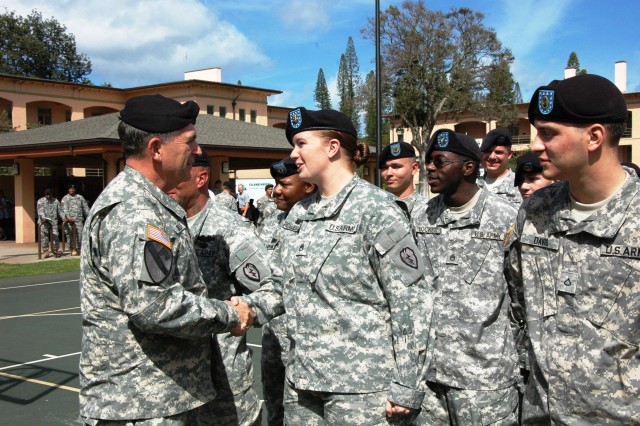
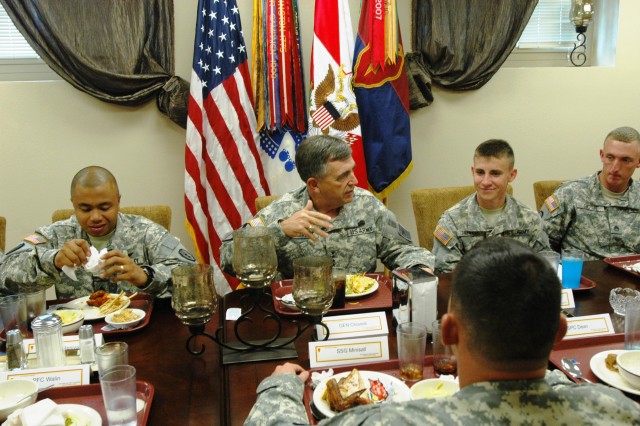
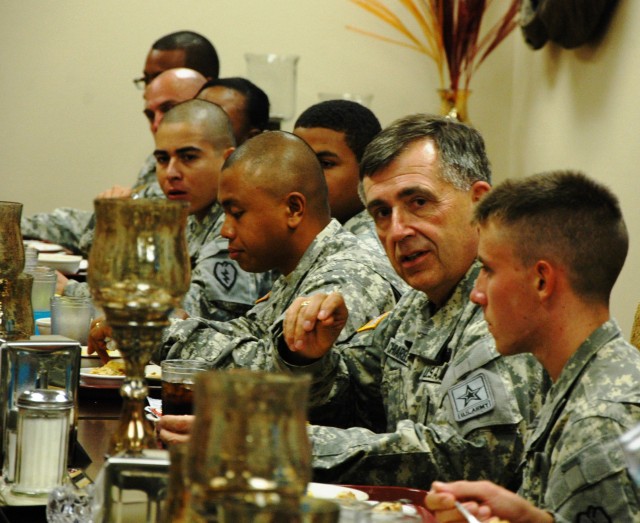
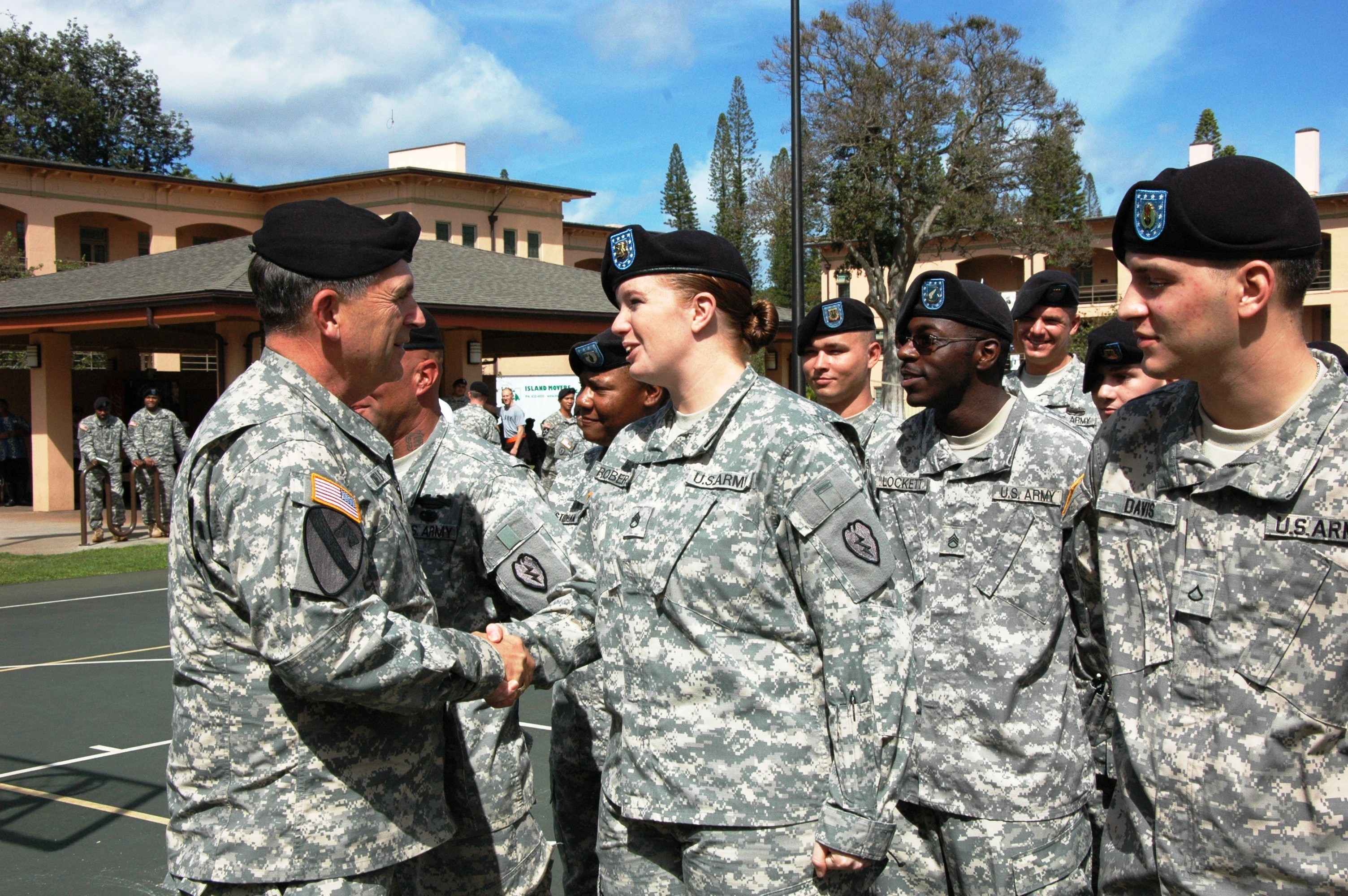
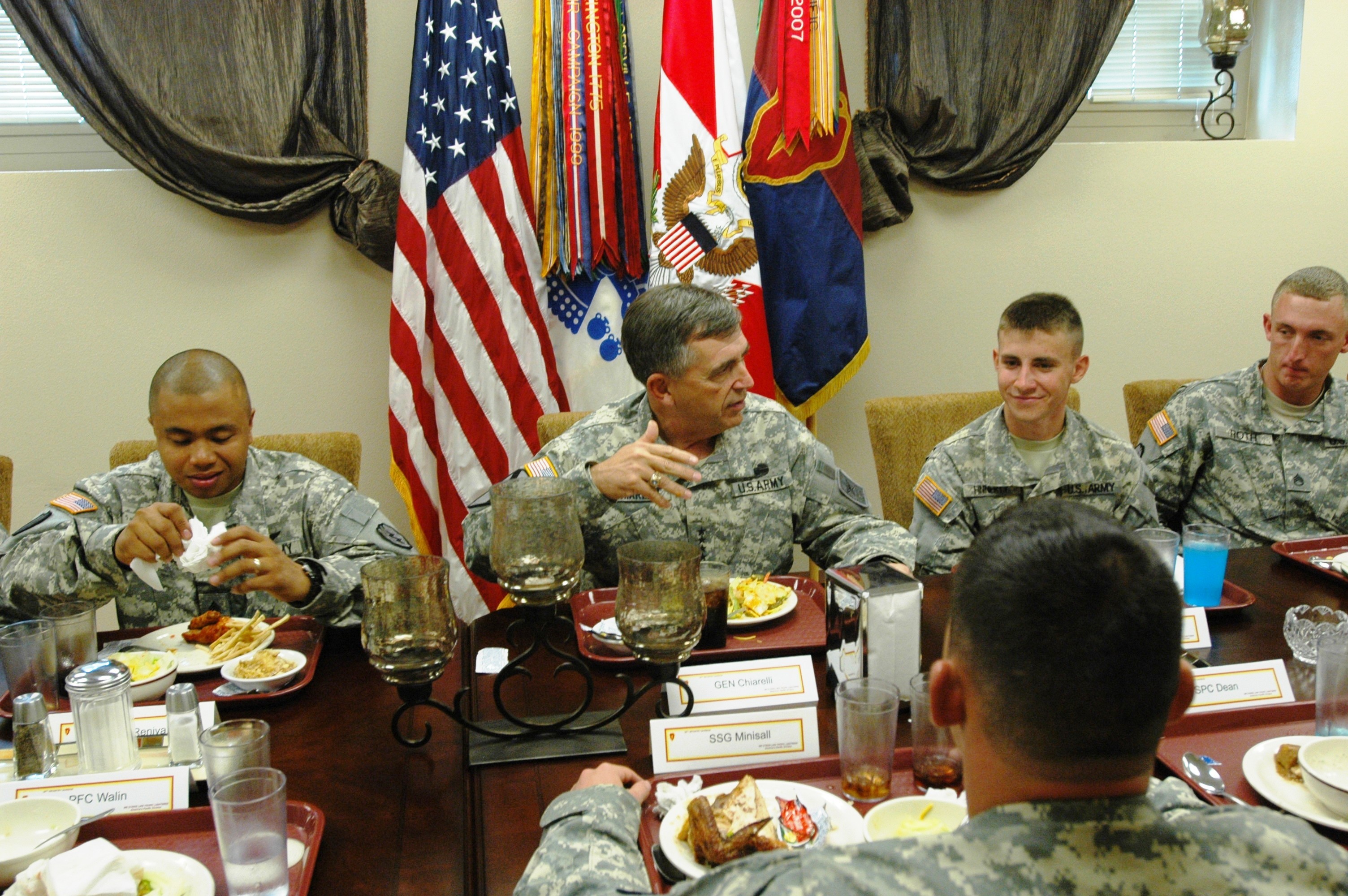
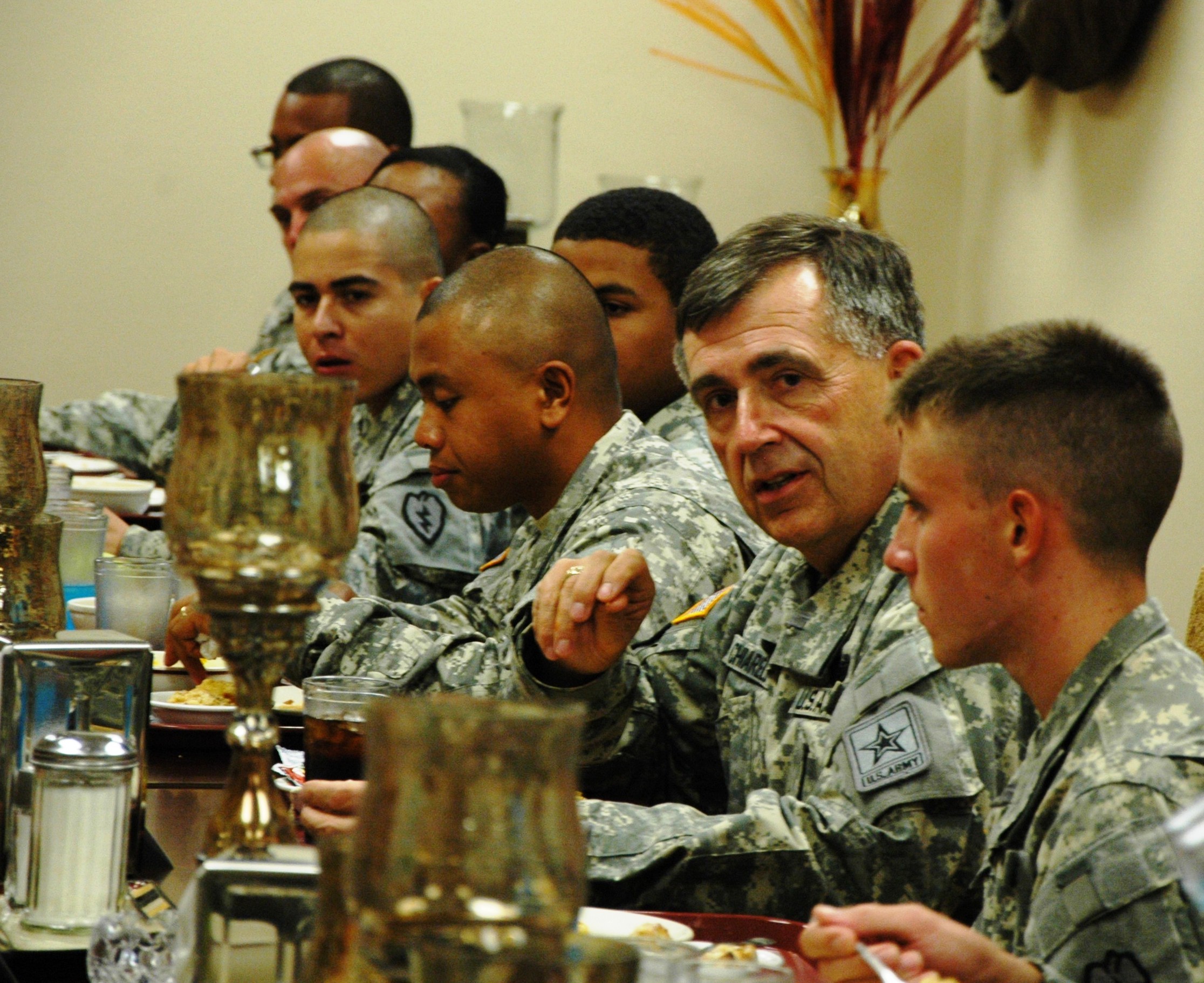
Social Sharing